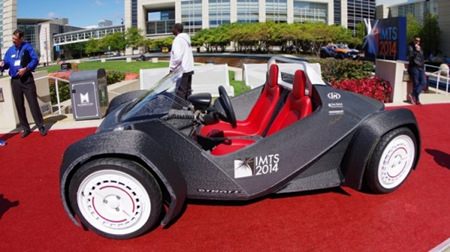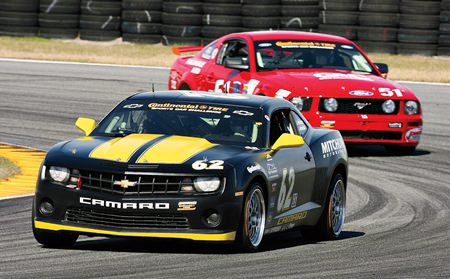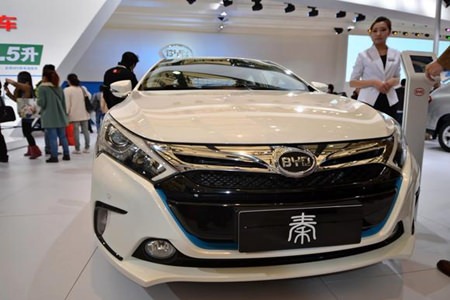 |
|
 |
|
AUTO MANIA:
by Dr. Iain Corness
[email protected] |
|
|
|

Print your own car and drive away

3D printed car.
3D printing has only become a possibility in the last
few years, though the adoption of this technology is spreading. The list
now includes 3D printable human tissue, to a 3D printed life-size
castle, and now a 3D printed car.
At the International Manufacturing Technology Show (IMTS) in Chicago,
Arizona-based automobile manufacturer Local Motors stole the show. Over
the six days of the IMTS, the company managed to 3D print, and assemble
an entire car, called the ‘Strati’, live in front of spectators.
Even though the Strati is not the first car to be 3D printed, the
advancements made by Local Motor with help from Cincinnati Inc, and Oak
Ridge National Laboratory, produced a vehicle in days rather than
months.
In 2013, engineer Jim Kor designed the Urbee 2 3D printed car. The
vehicle which weighed about half of what a typical automobile would
weigh, was as strong as steel. What set Local Motor’s ‘Strati’ 3D
printed car apart from the Urbee 2, was the fact that they managed to
print and construct the entire vehicle in just six days, whereas the
Urbee 2 took 2500 print hours to complete.
The breakthrough was made possible by a machine produced by Cincinnati
Inc., in cooperation with the Oak Ridge National Laboratory. The Big
Area Additive Manufacturing (BAAM) machine is capable of printing at
much faster speeds than traditional 3D printers. It can lay down up to
20 kg of carbon infused ABS plastic per hour, with precise accuracy.
After an exciting six days of printing, in front of a live audience, the
vehicle was finally complete.
To show that this was not just an automotive work of art, the car, which
features just 40 parts, drove out of McCormick Place in Chicago. Local
Motors’ next plan to do after the Strati 3D printed car, is to seek to
launch production-level 3D printed vehicles for sale to the public in
the coming months.
Having seen video clips of this machine (I call it that rather than
“car”) it is fairly basic, but is definitely a portent of what is to
come. Many parts of F1 cars are made using 3D printing. The family
run-about will be next, and finally an eco-car with the 3D printing
process producing parts around half the weight of conventional items.
|
|
 |
Can Asian Motor sport be cohesive?

Camaro
Motor sport in Asia has a reasonably long and stable
background, but nothing like the history of the sport in Europe or America, even
though China did host the Peking to Paris event in 1907. Asian motor sports have
developed in the individual countries independently, and these separate
countries have introduced their own local rules, which have more or less worked,
but only allows competition at the national level.
However, in today’s global village, it is necessary to branch out beyond
national borders. One such company which assisted Asian motor sport to grow
upwards and outwards was Motorsport Asia Limited, the brain child of David
Sonenscher, who could be considered to be the Bernie Ecclestone of Asia (but a
lot younger)!
Sonenscher’s Motorsport Asia developed the concept of a traveling circus called
the Asian Festival of Speed (AFOS) and made the personal transition from driver
and then team manager to finally a series organizer. That he had managed to do
that is a great testament to his persistence, as anyone who has tried to work
across the Asian borders will testify, despite ASEAN.
Unfortunately, some countries have made it very difficult to run a series
through non-recognition of carnets and other red tape requirements.
The latest to try and get an international series going is the Thailand Super
Series, calling itself the new era of Thailand motor sport. This series has been
running in Malaysia and Thailand, with the top category attracting the
international racing supercars from Porsche, Audi, Chevrolet Camaro,
Lamborghini, Nissan, Lotus, Toyota and Ferrari, and drivers in Thailand bringing
in international drivers such as Thomas Enge and international crews to look
after the cars, such as Reiter Engineering.
So far, this has been an incredibly successful series.
Another international series is the Porsche Carrera Cup Asia featuring 28
Porsche 911 GT3 Cup (Type 991) which has also been on the F1 program of events,
including the F1 round in Singapore last weekend.
This series is led by New Zealander Earl Bamber of LKM Racing, reigning Porsche
Carrera Cup Asia champion, Porsche Mobil1 Supercup leader and winner of the 2013
Porsche Motorsport International Cup Scholarship.
He is being closely followed by arch rival Martin Ragginger (Austria) of Team
Porsche Holding has fought hard all season to keep the main prize within reach,
taking his second win of the season in Malaysia last.
Also still in the frame for this year’s championship is former F1 test and
reserve driver, Tung Ho-Pin of China competing with Budweiser Team Absolute
Racing. Contesting his third Porsche Carrera Cup Asia season, Tung is currently
third on the leaderboard, two points ahead of 2012 champion Alexandre Imperatori
of PICC Team StarChase and Team Jebsen’s Rodolfo Avila, who are tied in fourth.
|

|
China promotes EV’s and Plug-in Hybrids (PHEV’s)

BYD EV
There are still those people around who
believe the average Chinese adult rides a bicycle. Sorry, the average Chinese
adult now drives a motor car, pays purchase tax to buy the car and is paying a
10 percent levy on the prevalue-added-tax price of a car. A car that sells for
100,000 yuan including the value-added tax, would cost the buyer an extra 8,547
yuan (almost 45,000 baht).
However, the Chinese government is aware of its air pollution problem, and as
part of the awareness campaign, starting this month, buyers of
government-approved electric vehicles and plug-in hybrids will not have to pay
this extra tax, according to China’s Ministry of Industry and Information
Technology and the State Administration of Taxation.
To show just how far down the line the Chinese automakers really are, there are
113 models that qualify for the tax exemption. The list includes the e6 from
Guangdong Province’s BYD Auto (Build Your Dream partly owned by Warren Buffet)
and the Roewe E50 (pronounced “Rover”) of Shanghai-based SAIC Motor. In all, 17
passenger electric vehicles from 11 automakers are covered by the program. As
for plug-in hybrids, the tax exemption applies to six models from four
carmakers. The program also covers electric and plug-in hybrid buses and trucks.
Four years ago, Beijing began subsiding purchases of electric vehicles. With the
tax exemption combined with a local government subsidy, car buyers can save up
to 100,000 yuan off the price of these cars. Now a BYD e6, which would otherwise
go for about 310,000 yuan, can be had for about the same amount as a Toyota
Camry or Honda Accord, midsize sedans that are made in China by joint ventures.
Sales of these so-called “green” vehicles have been rising recently. In the
January-June period, they increased 120 percent on the year, to the range of
20,000 units, according to industry data. In a bid to further boost these
numbers, Chinese President Xi Jinping in May visited a research and development
lab of SAIC Motor in Shanghai and stated that the development of next-generation
eco-friendly vehicles “is essential for making China an auto giant.”
In July, the State Council recommended that eco-friendly cars make up at least
30 percent of vehicles purchased by local governments and public transportation
authorities.
With the July recommendation, which says local government bureaucrats will be
assessed by how many eco-friendly vehicles they put into use and by how many
charging stations they manage to install. The Shanghai municipal government
appears to have taken notice. It has decided to introduce 13,000 eco-friendly
cars by 2015.
It is estimated that if these and other local governments do their part, they
could end up buying 80,000 eco-friendly cars in 2014 and 250,000 in 2015. In
doing so, they could provide a much-needed boost to China’s sluggish
eco-friendly car market.
|

|
What did we learn from the Singapore Grand prix?
To be perfectly frank, it was a processional and artificially
stage-managed race. Yes, it was processional as the much vaunted two DRS zones
are too short to allow the following car to pass, Singapore being another Bernie
inspired round the houses (hotels) race. If you saw a DRS pass, please let me
know, as I didn’t see one.
Stage-managed? Tell me why it took six laps behind the safety car to remove some
shards of a front wing from the track. My maid could have done it in three laps
with her whisk broom and dust pan. However, it did bunch the cars up again to
make it look exciting. Did Bernie have a word in someone’s ear again?
We also learned that despite the advances in electronics, they certainly are not
bullet proof. With all the millions in the Mercedes piggy bank, they sent
championship leader Nico Rosberg out with a car that wasn’t even running
properly in the pit garage! Rosberg stating that, “The problems with my steering
wheel began in the garage even before the race and it was a difficult moment
when I couldn’t pull away from the grid - the car didn’t get out of neutral.
When I left the pit-lane, I was only able to change gear - there was no radio,
no DRS and reduced Hybrid power. We were hoping that the systems might come back
to life, like the radio did, and that we could change the situation. But after
we changed the wheel another time, we had to retire the car.” Note that Mercedes
was “hoping that the systems might come back to life.” Sorry, only Bernie (or
God) can do that. On second thoughts, perhaps Bernie is God?
So to the race, or rather the procession. An interesting start where Alonso
(almost) pulled the rabbit from the hat on the first corner, steaming through to
second place by having all four wheels off the racing surface. Four wheels? You
could have driven an 18 wheeler through there on Fernando’s line. He did give
one place back (Vettel), and should have also surrendered to Ricciardo, but no
five second stop-go penalty, although others did get penalized - but then again
they weren’t battling at the sharp end. Did Bernie have a word with the stewards
about this?
Hamilton deserved his win. He was never challenged and towards the final stages
could pull away from second placed Vettel (Red Bull) and third placed Ricciardo
(Sick Bull) and fourth placed Alonso (Ferrari) at two to three seconds a lap!
Unreliability was the name of the game in Singapore with Rosberg, then Ricciardo
where Christian Horner later disclosed that the power surges were caused by a
battery that wouldn’t discharge. A new rabbit needed? Jenson Button (McLaren)
stopped through failure of the car’s electrical power box. Electrics also
sidelined Gutierrez’ Sauber, and poor old Kamui Kobayashi (Caterham) caught fire
on the way to the grid.
The next meeting is next week in Japan. Let us hope that the top echelon of
motor sport can find reliability and provide good racing.
|

|
Autotrivia Quiz
Last week I mentioned that two men met in 1899 and they made
plans to form a company and build their own “Moto-cycle”. Who were they and what
was the product called? It was the Indian motorcycle and the two man were George
Hendee and Oscar Hedstrom.
So to this week. Disappearing headlights were known before WWII but were not
seen again till 1966. On what car?
For the Automania free beer this week, be the first correct answer to email
[email protected].
|
|
 |
|
 |

